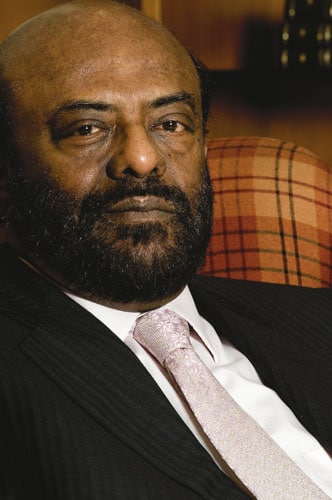
Shiv Nadar: "I never felt bad about losing out to my peers"
Shiv Nadar, chairman and the chief strategy officer of HCL Technology, speaks to Forbes India about entrepreneurship, HCL Technologies, Vineet Nayar and his vision for the company.
Looking back, do you think that HCL missed the bus on Y2K and ADM (application development and maintenance) business?
In hindsight we shouldn’t have missed it, we were the most qualified for it, but we were and have been a technology company and that was the main thing. We expected that ADM would grow but it wasn’t going where we wanted it to go. In the year 2000 I refused a deal worth $175 million for ADM work at $28 per hour. I never felt bad about losing out to my peers. I believed it then and I believe it now, the core of this company is technology. If you see the real buses we missed — we missed the bus of being a Microsoft. Our operating system was working in 1977.
Today, you are winning a lot of infrastructure outsourcing deals. Did you see that wave coming?
We saw the infrastructure wave coming in 2002. ADM size is definable and it is closer to its maturity levels. Now the world will go more towards package implementation. And that will be a very large market for us. Infrastructure services [so far] has stayed more or less within the corporations themselves. They will come up and relook what is their main business [and ask] do we have to run this?
Was this linked to the decision to bring in Vineet Nayar from Comnet as HCL Tech CEO?
No, I had informed the board in 1999 that he will succeed me as the CEO. At that time [in 2005] he didn’t want the job. He didn’t want to run such a large company. He was thoroughly enjoying himself in Comnet.
What was your rationale for picking him up?
[He is a] Star. Stars should not come through a process. They should flicker and they should be visible from a distance. At that time the need for transition to a new CEO was very visible. [S.] Raman [co-founder and CEO] was unwell. And it was necessary for him to retire.
And you were clear that you were not going to be the CEO?
I never was the CEO.
One saw very little of you after that.
You any way would haven’t seen much of me even before that.
There is a distinct difference in the way Raman was running the company and how Nayar is running HCL Technologies today.
They are different personalities.
How difficult was it for you to step back and let go?
I am afraid the difficulty I had was not this. The difficulty I had was with HCL Infosystems. I knew every brick of that building. I was only in my 40s when I was moving out of that business.
How involved are you with HCL Technologies today?
I still work 18 hours a day. But actually 80 percent of the work I do is for the university that I am setting up. That is my passion now. I haven’t even seen all the offices of HCL Tech. I have probably gone to only five country offices out of 23 countries we have offices in. But the school we have in UP, I go there every month and if possible in 15 days.
As an entrepreneur, what next?
Now it is time to give. When I see education, I see how with the hub and spoke model, satellite and technology [we] could solve a lot of problems [in] education.
If Nayar decides to move on, how prepared are you? Have you found his successor?
That’s his [Nayar’s] job and the board’s job. We have 26 corporate offices in the company and for each of them we have a back up, approved by the board with specific involvement of HR.
What kind of role do you see for the Nadar family?
I have one child. She is very committed to philanthropy.
Right now you are the chief strategy officer and the chairman. In what way will you be involved going forward?
Someone else will be the chief strategy officer. I am the chief strategy officer because it is more specific to my strengths. I am considered one of the best strategists. So that job continues to be with me. It does not mean that Vineet does not do strategy.
Anything unaccomplished? Anything on your to-do list as you look ahead?
I wish I had gotten onto philanthropy a lot earlier. I believed in it at that time. I believe it now. The core of this company is technology. It’s a huge asset. We haven’t exploited it. If you ask me what’s your unaccomplished agenda, this is it. But if I keep chasing this I will never be able to do anything towards philanthropy.
Are you taking a step back or you have already taken a step back?
Already taken a step back. It’s in the past tense.
Your baby is in safe hands?
Not just two but many. I have a lot of faith in our management. That’s why I can go and build the university.
(This story appears in the 06 November, 2009 issue of Forbes India. To visit our Archives, click here.)















